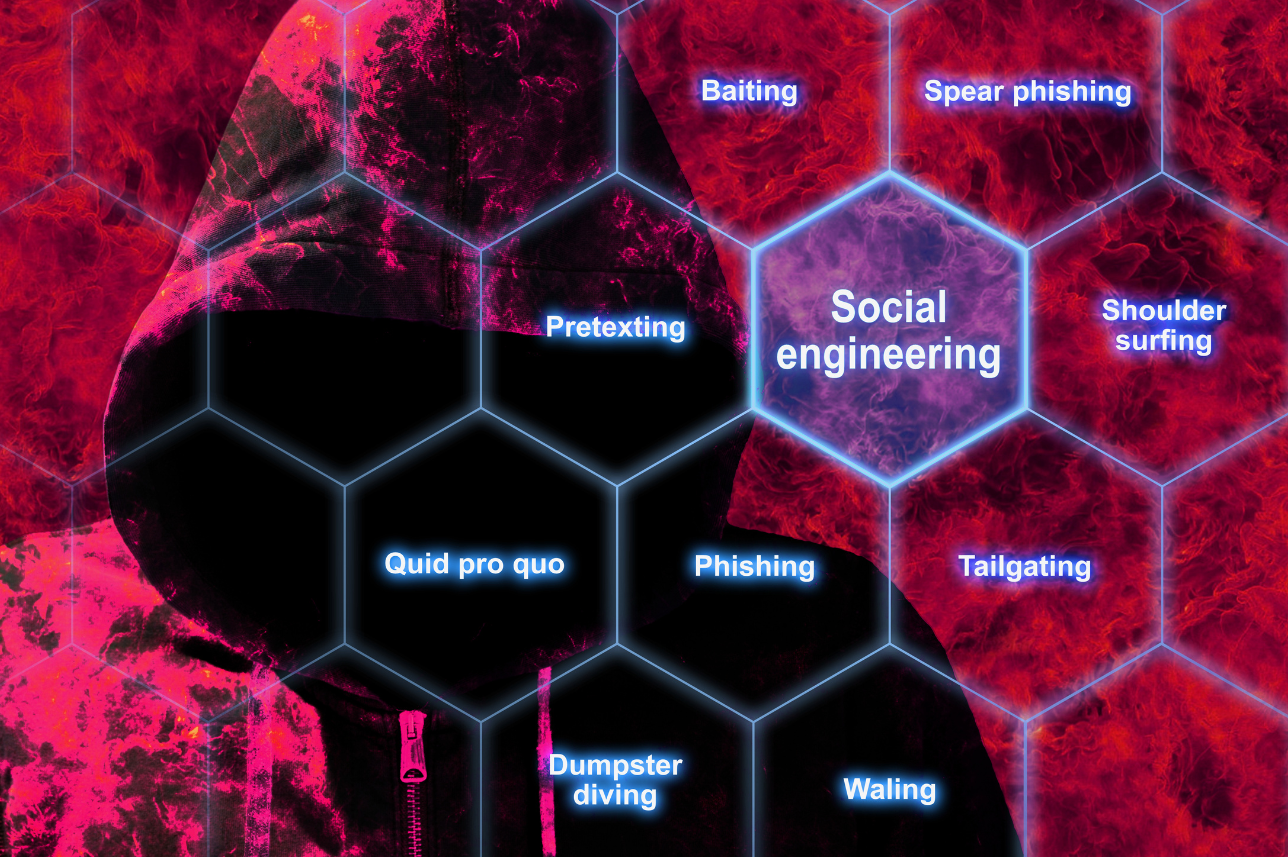Unmasking Cyber Tricksters: How to Outsmart Social Engineering Cyber Attacks

New threats are constantly lurking around every digital corner, but one threat stands out for its stealth and sophistication: social engineering cyber attacks. These deceptive maneuvers bypass technical defenses by exploiting the weakest link in the security chain: human psychology. In this article, we’ll delve into the world of cybersecurity and social engineering attacks, understand how they work, and most importantly, explore strategies to thwart them.
The Anatomy of Social Engineering Cyber Attacks
Social engineering attacks encompass a wide array of tactics, each designed to manipulate human behavior for malicious ends. From phishing emails and pretexting phone calls to baiting schemes and impersonation scams, the arsenal of social engineers is as diverse as it is deceptive.
- Phishing: Perhaps the most ubiquitous form of social engineering, phishing, involves sending fraudulent emails masquerading as legitimate communications from reputable sources. These emails often prompt recipients to click on malicious links, disclose sensitive information, or download infected attachments, thereby compromising their security.
- Pretexting: In pretexting attacks, perpetrators fabricate a pretext or scenario to manipulate individuals into divulging confidential information or performing actions that compromise security. This could involve posing as a trusted authority figure, such as an IT technician or a bank representative, to gain the target’s trust and coax sensitive data out of them.
- Baiting: Baiting attacks dangle enticing lures, such as free software downloads or exclusive offers, to tempt users into taking actions that compromise their security. By exploiting curiosity or greed, attackers trick unsuspecting victims into downloading malware-infected files or entering their login credentials on fake websites.
- Impersonation: Impersonation attacks involve masquerading as a trusted entity – whether a colleague, a friend, or a reputable organization – to deceive targets into divulging sensitive information or performing unauthorized actions. These attacks exploit familiarity and trust to bypass the target’s defenses and gain access to valuable data or resources.
Protecting Against Social Engineering Attacks
Despite their cunning tactics, social engineering attacks are not invincible. With the right awareness, education, and proactive cybersecurity measures, individuals and organizations can fortify their defenses and mitigate the risks posed by these insidious threats.
1) Raise Awareness: Education is the first line of defense against social engineering attacks. Train employees to recognize the signs of phishing emails, pretexting calls, and other deceptive tactics, and encourage them to remain vigilant when sharing sensitive information or interacting with unfamiliar contacts.
2) Implement Security Protocols: Establish robust security protocols to safeguard against social engineering attacks, including multi-factor authentication, email filtering systems, and regular security awareness training. By implementing layers of defense, organizations can minimize the likelihood of successful attacks and mitigate their impact if breaches occur.
3) Verify Identities: Encourage a culture of skepticism and verification, where individuals verify the identities of unfamiliar contacts and question requests for sensitive information or actions that seem out of the ordinary. By adopting a “trust but verify” mindset, individuals can thwart impersonation attacks and protect their personal and organizational security.
4) Stay Updated: Keep software and security systems up to date to defend against emerging threats and vulnerabilities. Regularly update antivirus software, install security patches, and stay informed about the latest trends in social engineering attacks to adapt defenses accordingly.
5) Report Incidents: Encourage individuals to report suspected social engineering incidents promptly. Establish clear reporting procedures and channels for reporting suspicious emails, phone calls, or other interactions, and empower employees to seek assistance from IT or security personnel if they suspect foul play.
Partnering With a Trusted MSP
Social engineering cyber attacks pose a significant threat to individuals and organizations alike, leveraging psychological manipulation to bypass technical defenses and compromise security. However, by understanding the tactics employed by social engineers, adopting proactive measures to thwart their schemes, and partnering with an MSP like Entre Technology Services, you can fortify defenses and mitigate the risks posed by these insidious threats. Here at Entre, we are guided by three core values that encapsulate our ethos: Embrace the Hustle, Be Better & Invest in Others. These values serve as our compass and are what guide our business model and inspire us to create successful solutions to everyday IT problems, specifically cybersecurity. Contact us for a free quote today!






